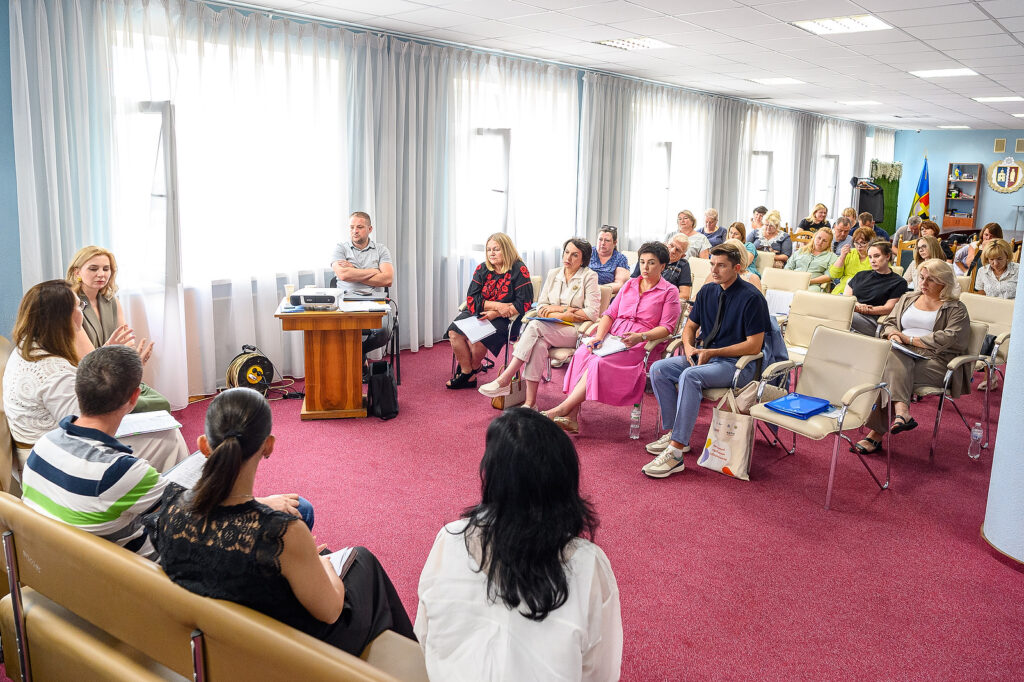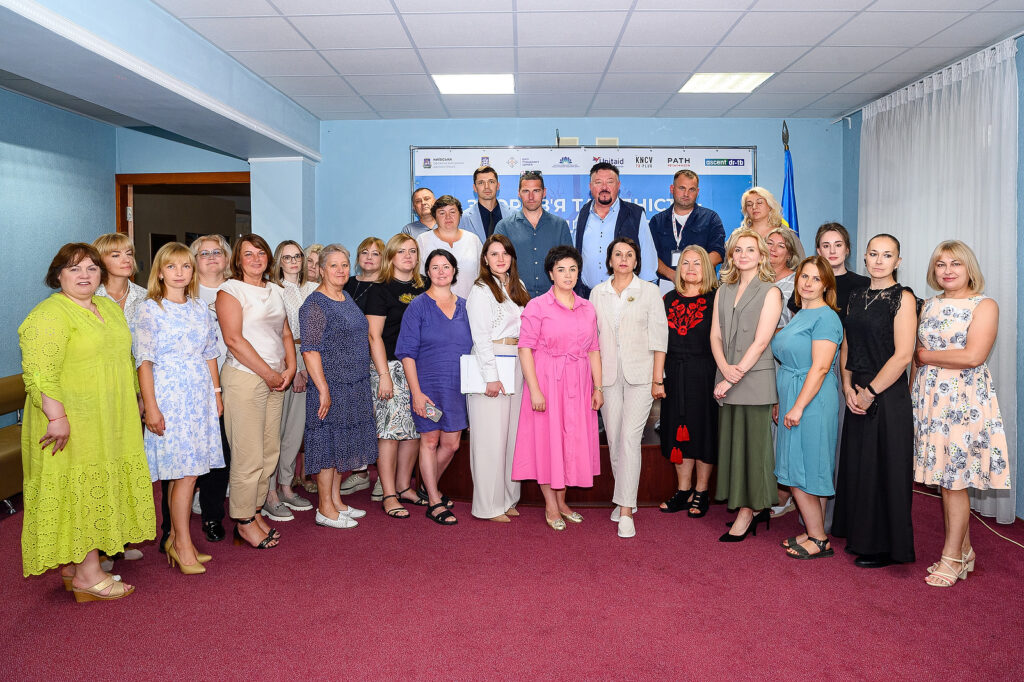Tuberculosis (TB) is not only a challenge for healthcare facilities, but also a social issue that requires joint efforts from authorities, healthcare providers, and communities. It remains one of the top 10 causes of death globally, and unfortunately, Ukraine is among the countries with a high TB and drug-resistant (DR-TB) burden.
To foster effective collaboration, a series of multisectoral coordination meetings have been launched in Kyivska oblast, Ukraine, aimed at aligning regional and local efforts in TB and DR-TB prevention and care. These meetings are being conducted progressively across all seven districts of the oblast.
About the 2nd Multisectoral Meeting in Ukraine
With technical support from ASCENT DR-TB and NGO “Convictus Ukraine”, on August 6, 2025, the second multisectoral meeting was held in Vyshhorod to coordinate actions and responsibilities in the TB and DR-TB response in the territorial communities of Vyshhorodskyi district, in line with the latest World Health Organization (WHO) recommendations on TB and DR-TB and the National Strategy for the Development of TB Care for 2024–2026.

The meeting brought together representatives of the Kyivska Oblast State Administration, Kyivska Oblast Council, National TB Program represented by the Public Health Center of the Ministry of Health of Ukraine, regional Center for Disease Prevention and Control, heads of united territorial communities of Vyshhorodskyi district, representatives of Vyshhorodskyi District State Administration, healthcare facility managers, and non-governmental organizations.


The discussions emphasized the critical role of local self-government in strengthening TB and DR-TB prevention, diagnostics, care, and support. A clear takeaway emerged:
sustainable progress can only be achieved when communities take active ownership of their role in the health system.
A notable example was the Slavutych territorial community, which shared its experience in building effective intersectoral collaboration. Through well-established cooperation, the community has built coordinated patient pathways and brought TB care closer to the people.
The agenda also addressed the role of education and social protection sectors in supporting vulnerable groups, including internally displaced persons, veterans, and families in difficult life circumstances. Special attention was given to legal aspects, particularly the protection of patient rights and ensuring intersectoral coordination in line with the legal framework.

Tetiana Zemliak, Head of Kyivska Oblast Specialized Medical Center and moderator of the event concluded the meeting with a powerful message:
The commitment of local leaders, their openness to innovative approaches, and their readiness to build coordinated networks are key to achieving long-term improvements in public health and ending TB at the community level.

